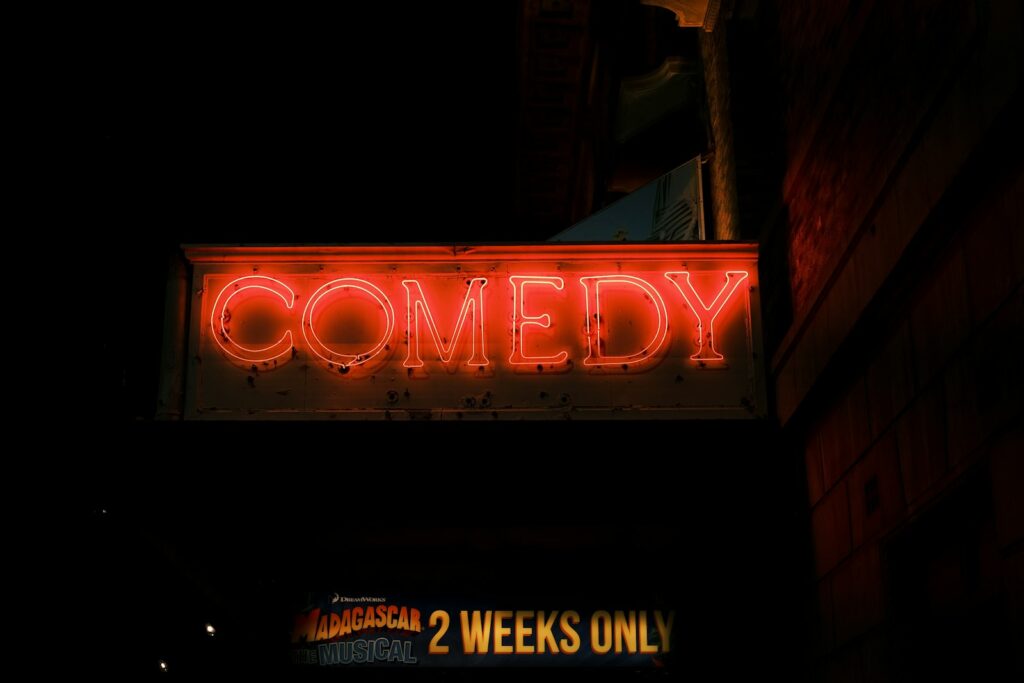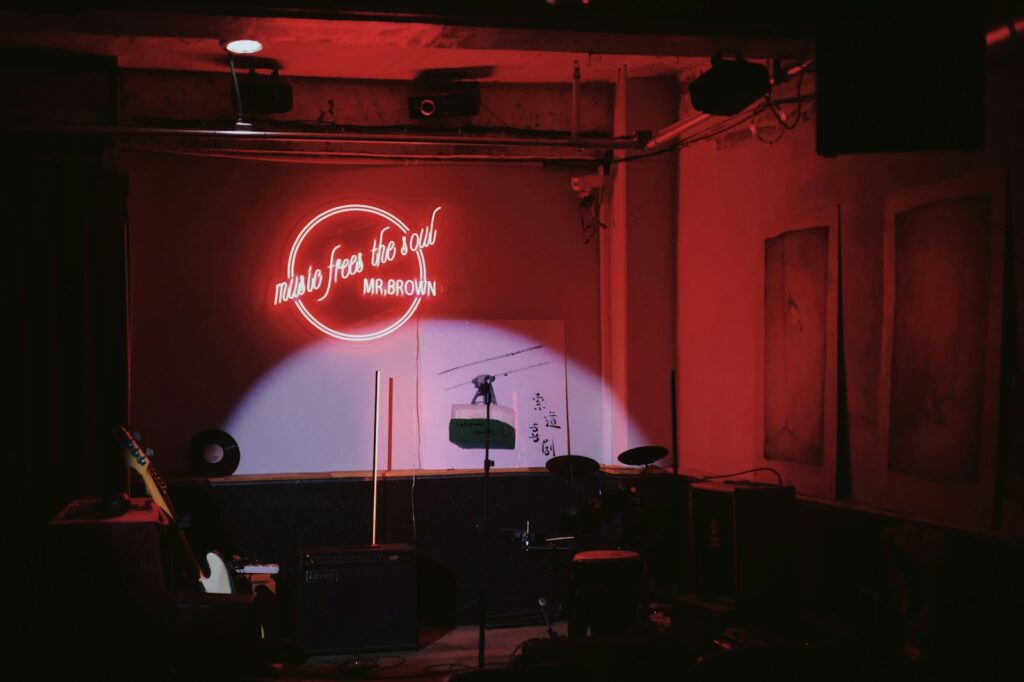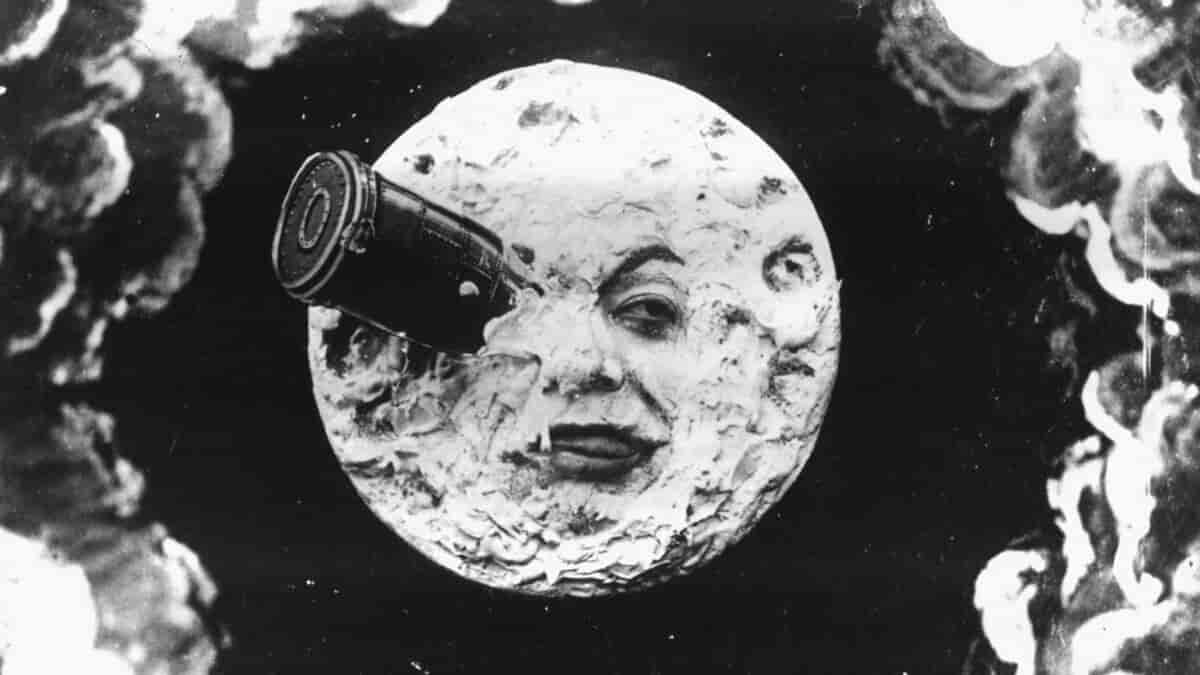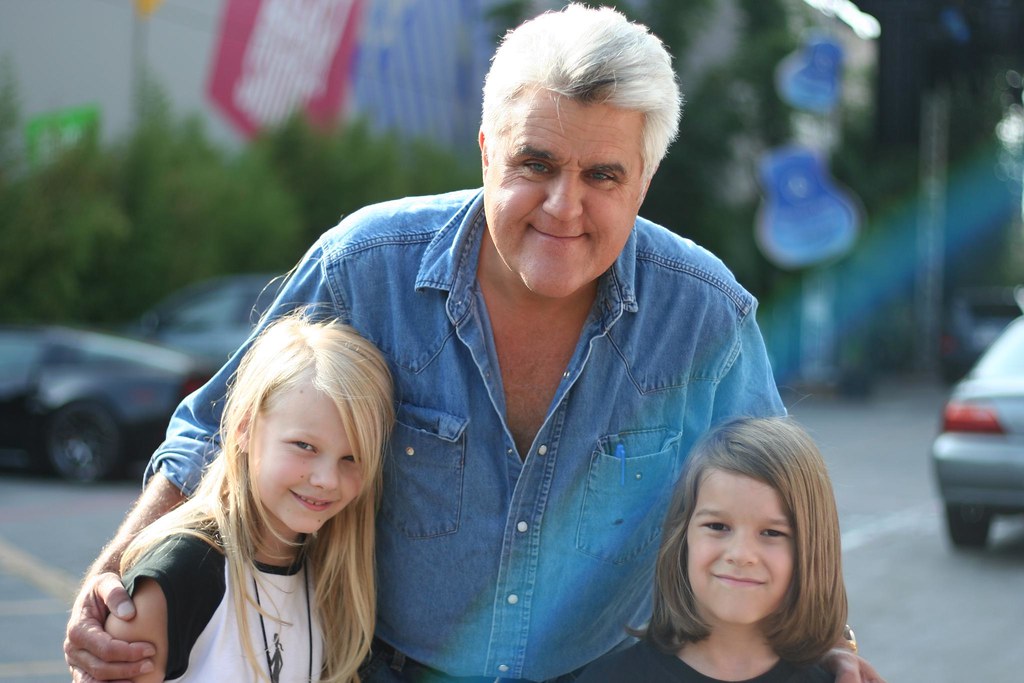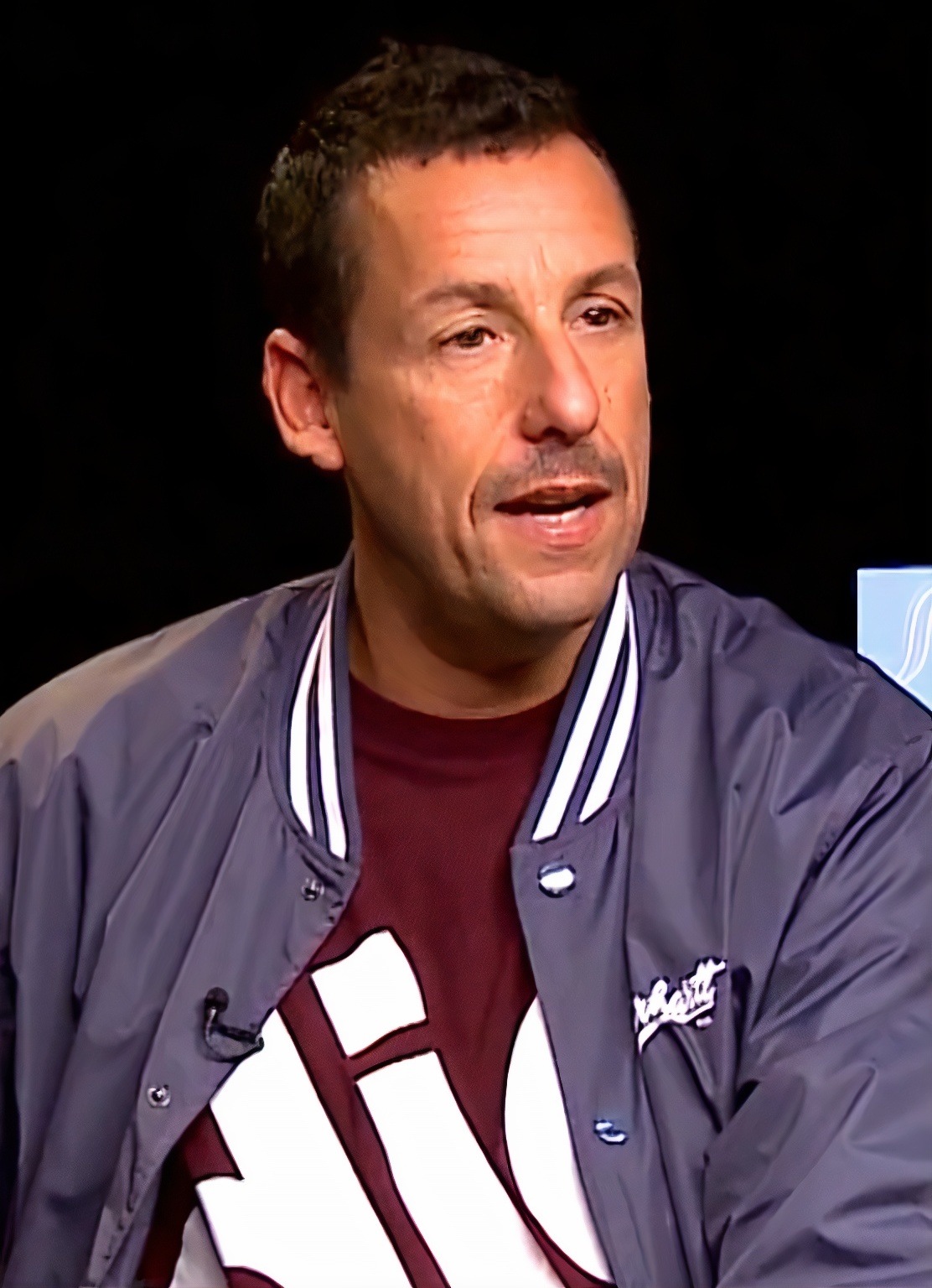The 1990s. Ah, the sheer mention of it conjures up images of dial-up internet, grunge music, questionable fashion choices, and, most importantly, some of the most iconic comedic talents to ever grace our screens and stages. It was a decade where stand-up comedy was exploding, television sitcoms became cultural touchstones, and hilarious movies defined a generation. Comedians weren’t just telling jokes; they were shaping our perspectives, challenging norms, and giving us a much-needed dose of laughter amidst all the, well, *stuff* happening in the world.
Seriously, if you grew up in the ’90s, you know exactly what we’re talking about. The humor was fresh, often daring, and undeniably memorable. From observational wit that made you say, “Yep, that’s totally me!” to physical comedy that had you gasping for air between laughs, the decade was a veritable smorgasbord of comedic brilliance. These were the artists who not only made it big but etched themselves into the very fabric of pop culture, influencing everything from late-night TV to the way we talk to our friends.
So, buckle up, ’90s kids and comedy aficionados alike, because we’re about to take a delightful stroll down memory lane. We’re celebrating the legendary funny men and women who dominated the decade, tickled our funny bones, and left us with sides hurting from laughter. Get ready to revisit some truly unforgettable moments with the first six superstars from an era that truly defined comedy.

1. **Chris Rock: The Unapologetic Voice of a Generation**If you were around in the ’90s, you couldn’t escape Chris Rock, and frankly, why would you want to? He emerged as a major force in stand-up comedy, not just telling jokes, but tackling controversial subjects like race, relationships, and politics with unapologetic honesty. His high-energy performances were legendary, demanding attention and delivering insights that were as sharp as they were hilarious.
Rock’s iconic HBO specials, “Bring the Pain” (1996) and “Bigger & Blacker” (1999), cemented his status as a comedic titan. With these specials, stand-up comedy truly didn’t get bigger. He didn’t just perform; he preached, he observed, he challenged, all while keeping audiences roaring with laughter. It was a masterclass in observational humor and social commentary, wrapped up in a package of raw, unfiltered comedic genius.
His impact wasn’t limited to the stand-up stage. Rock’s keen observations and biting wit led him to his own HBO series, “The Chris Rock Show,” which further showcased his unique voice and perspective. This show became another platform for him to dissect pop culture and societal issues, proving he was more than just a comedian; he was a cultural commentator. His influence from the ’90s can still be felt today, solidifying his place as one of the most respected comedians of his generation.
Seriously, if you haven’t revisited his 90s specials, you’re missing out on some foundational comedy. His ability to blend incisive social commentary with gut-busting humor set a new bar for what stand-up could achieve. He was a trailblazer, unafraid to make audiences uncomfortable while simultaneously making them laugh uncontrollably. It’s no wonder he remains a powerhouse in comedy and film, continuing to push boundaries and make us think, even when we’re laughing till our sides ache.
2. **Adam Sandler: The King of 90s Movie Comedy**Adam Sandler’s journey from “Saturday Night Live” cast member to leading comedic actor absolutely epitomized the 1990s comedy scene. Remember his quirky characters and musical parodies on SNL? They were just a taste of the magic he was about to unleash on the big screen. His unique blend of juvenile humor and surprising heart resonated with audiences of all ages, making him an instant superstar.
He seamlessly transitioned to film with a string of hits that became quintessential 90s classics. Movies like “Billy Madison” (1995), “Happy Gilmore” (1996), and “The Waterboy” (1998) weren’t just box office successes; they were cultural touchstones. His relatable portrayals of lovable underdogs, often with a penchant for silly voices and explosive temper tantrums, created a comedic formula that was uniquely his own and widely imitated.
Sandler wasn’t just an actor; he was a phenomenon. The context mentions he “sold out stadiums with his combination of stand up and musical comedy,” showcasing the incredible breadth of his talent and his immediate connection with fans. This blend of live performance and cinematic success solidified his status as a comedy icon, proving he could command massive crowds both on stage and in theaters. His energetic stage presence and unique musical takes on everyday situations were a breath of fresh air.
Beyond his acting roles, Sandler’s contributions as a writer and producer during this era laid the groundwork for his extensive career. He wasn’t just starring in films; he was crafting a specific brand of comedy that would leave a lasting impact on the industry. The 90s truly belonged to Adam Sandler, and his influence continues to shape comedic film to this day, making him one of the highest-paid actors in Hollywood, even decades later.

3. **Jon Stewart: From MTV Host to Voice of a Generation**Before he became a household name dominating the world with “The Daily Show,” Jon Stewart spent the 1990s carving out a formidable presence in the comedy world. His stand-up career was flourishing, earning him spots on prestigious shows like “Letterman,” where his sharp wit and intelligent observations quickly caught the public’s eye. He wasn’t just telling jokes; he was engaging audiences with a thoughtful, yet hilarious, perspective on the world.
The 90s saw Stewart host his own talk show on MTV, “The Jon Stewart Show.” This early venture demonstrated his ability to lead a program and interview guests with his signature blend of humor and insight. It was a crucial stepping stone, showcasing his potential for a larger platform and proving he could hold his own in the late-night landscape. The experience certainly prepared him for what was to come, allowing him to hone his on-screen persona and refine his comedic timing.
Indeed, his stand-up success and his time on MTV directly resulted in “two separate television series with his name on it: MTV’s The Jon Stewart Show and The Daily Show with Jon Stewart.” This progression highlights how his comedic talent and growing popularity in the 90s were undeniable. He was a rising star whose articulate humor made him a favorite among comedy fans who appreciated a more cerebral approach, often using self-deprecating humor to connect with viewers.
Stewart’s time in the 90s cemented his reputation as a comedian capable of blending humor with keen social commentary. He wasn’t afraid to tackle complex issues, but always did so with a relatable, often self-deprecating, charm. This foundation built in the 90s propelled him into the next century as a comedic and journalistic force, forever changing the face of political satire and inspiring a new generation of satirists. His ability to dissect news with humor was revolutionary.
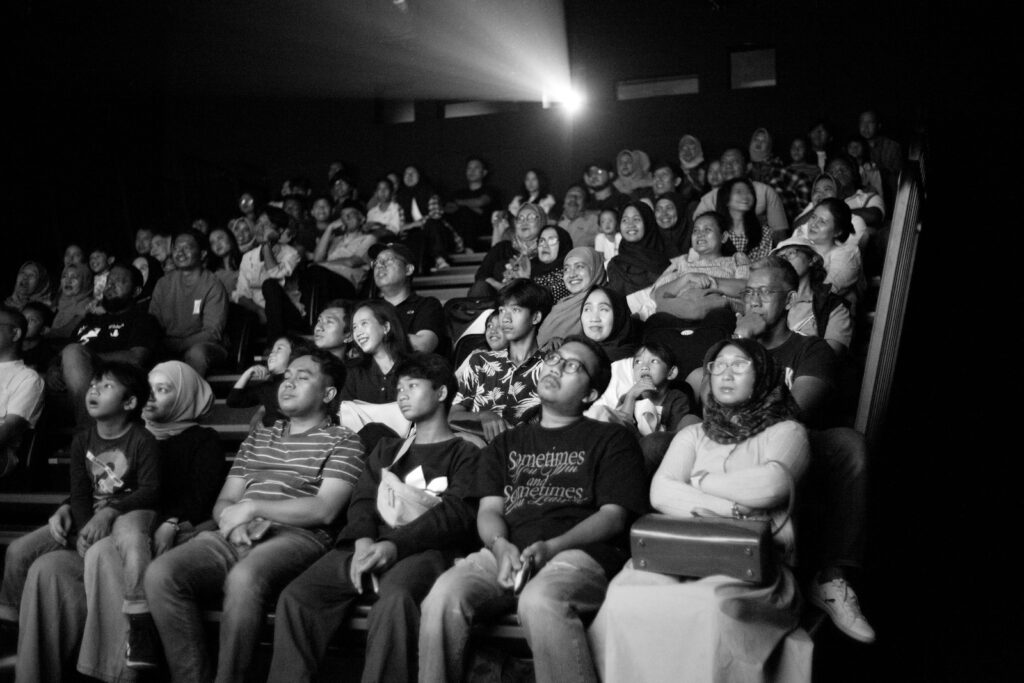
4. **Dave Chappelle: A Unique Blend of Wit and Irreverence**Dave Chappelle, one of the most influential comedians of his generation, really started making his mark in the New York comedy circuit in the early 1990s. Even then, his stand-up style was noted for its incisive social and political commentary, biting wit, and fearless exploration of race and popular culture. He quickly gained a reputation for his hilarious stand-up comedy, often addressing political and racial issues with a unique blend of intelligence and irreverence.
Born in Washington D.C., Chappelle masterfully incorporated stories from his own life into his routines, adding a layer of authenticity and relatability that few could match. This personal touch, combined with his quick wit and keen social commentary, brought him widespread recognition throughout the decade. Audiences were captivated by his distinctive style and raw energy, recognizing that they were witnessing a truly innovative voice. His observational skills were second to none, allowing him to pull humor from the most unexpected places.
While “Chappelle’s Show” became a massive hit in the 2000s, its groundbreaking comedy and biting social commentary were built upon the foundation he meticulously crafted in the 90s. His work during that earlier period was crucial, showcasing his ability to weave complex themes with gut-busting punchlines. He was constantly refining his craft, pushing boundaries, and solidifying his status as an emerging icon who wasn’t afraid to speak truth to power through laughter.
Chappelle’s distinctive style and energy made him one of the most popular and innovative comedians of his time, even before his massive mainstream explosion. His 90s performances were essential in establishing his voice and preparing him for the global recognition that was just around the corner, proving that true comedic genius always finds its audience. He became a role model for many, demonstrating that comedy could be both deeply profound and hysterically funny.
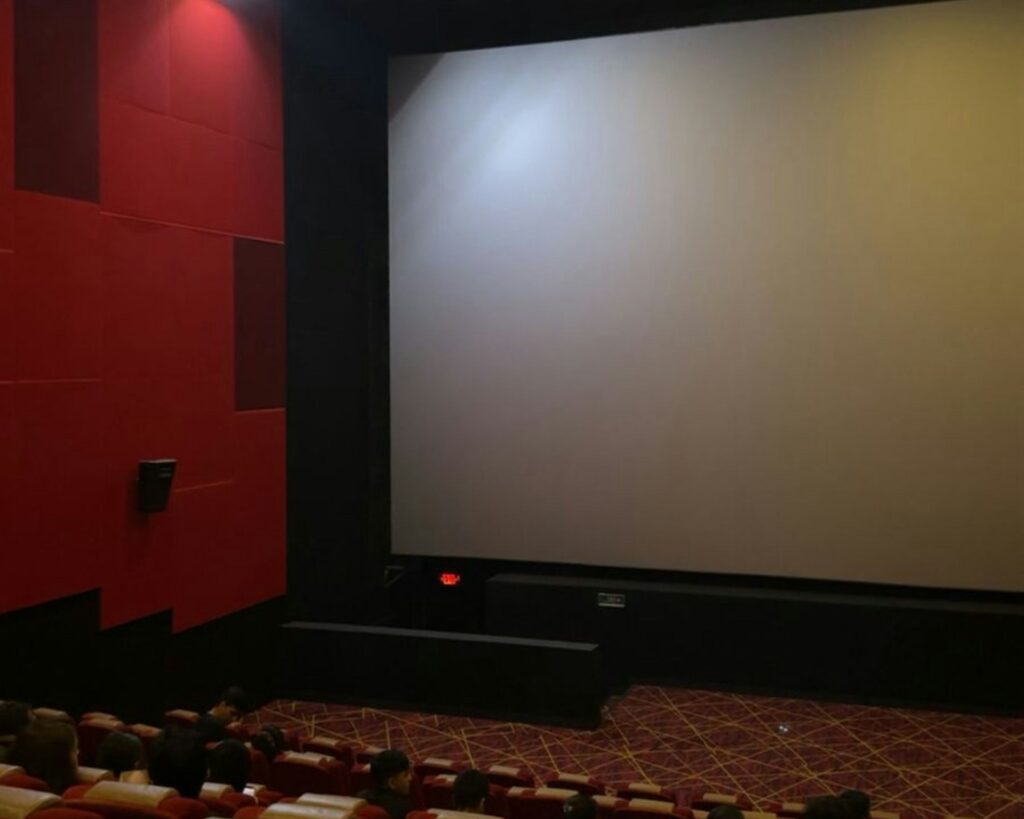
5. **Ray Romano: The Everyday Humorist Who Struck Gold**Ray Romano, with his distinctive voice and incredibly relatable humor, truly saw his comedic career take off in the 1990s. You know him, you love him, and you probably still quote lines from his most famous work. His stand-up routines often revolved around his family, relationships, and the everyday absurdities of life, giving his humor an enduring and universally appealing quality that perfectly captured the spirit of the decade.
The context points out that Romano “embodied the 1990s stand-up comic’s dream: Land a spot on Letterman, kill, then sign a sitcom deal with Worldwide Pants.” This wasn’t just a dream; it was his reality, and it spoke volumes about how his observational comedy resonated with audiences. His ability to find humor in the mundane, in the arguments with his wife or the antics of his parents, made him instantly connectable and a favorite on the late-night circuit.
This relatable brand of humor led directly to the success of his beloved sitcom, “Everybody Loves Raymond.” The show, which premiered in 1996 and ran for nine seasons, was based on Romano’s own life and stand-up material. It was celebrated for its authentic portrayal of a middle-class American family and became a cornerstone of 90s television comedy, proving that sometimes, everybody *does* love Raymond for his genuine and warm approach to comedy.
The success of “Everybody Loves Raymond” wasn’t just a happy accident; it was a testament to the power of Romano’s 90s stand-up. His ability to translate his stage persona into a beloved character made him a household name. This transition showcased his versatility as both a comedian and an actor, cementing his place as one of the most beloved and successful comedians to emerge from the 90s era, whose work continues to resonate with new generations.
_(cropped).jpg/440px-Norm_MacDonald_(26378045703)_(cropped).jpg)
6. **Norm Macdonald: The Master of Deadpan and Unexpected Wit**Norm Macdonald, a truly singular comedic voice, rose to fame in the 1990s as a cast member on “Saturday Night Live.” He was, and still is, best known for his deadpan humor and his iconic tenure as the “Weekend Update” anchor. His easygoing, conversational style, combined with a remarkably sharp wit, quickly made him a favorite among both audiences and his fellow comedians. He had a way of making the most absurd statements sound perfectly reasonable.
Macdonald had a knack for delivering a joke with a straight face, often letting the absurdity or the unexpected punchline hang in the air for maximum comedic effect. This distinctive style set him apart from his peers and earned him a loyal following. He was a master of the non-sequitur, capable of taking a conversation in the most hilariously unpredictable directions, leaving everyone wondering what he’d say next. This unique approach made every appearance a must-watch event.
His time on “Weekend Update” became legendary, where he fearlessly poked fun at celebrities and current events, often with a mischievous twinkle in his eye. He wasn’t afraid to be controversial, but it was always delivered with a charming, almost naive, innocence that somehow made it all the funnier. These segments are still widely rewatched and studied by aspiring comedians today as examples of comedic timing and subversive humor.
Macdonald’s success continued with appearances in movies and on television, further solidifying his place as a comedic icon in the 1990s. Even after his SNL departure, his unique voice continued to influence the comedic landscape. He left an indelible mark with his intelligent, often philosophical, approach to humor, proving that true wit never really goes out of style. He’s truly one of those comedians whose brilliance only grew with time, making his 90s era work even more cherished. His legacy as a “comedic icon” from the 90s is absolutely undeniable.

7. **Jim Carrey: The Human Cartoon Who Redefined Physical Comedy**Jim Carrey’s explosive ascent in the 1990s was truly a spectacle, a comedic force that left audiences captivated and in stitches. Coming from a background in stand-up and his memorable run on “In Living Color,” Carrey brought an unparalleled, almost frenetic energy to the big screen. He wasn’t just performing characters; he was embodying them with such all-consuming passion that you couldn’t help but be utterly engrossed, eagerly anticipating what wild, hilarious thing he would do next. His distinctive comedic timing and expressive physicality were already turning heads long before his film career exploded.
His iconic roles in films like “Ace Ventura: Pet Detective” (1994), “The Mask” (1994), and “Dumb and Dumber” (1994) weren’t merely box office hits; they rapidly transformed into undeniable cultural phenomena. Carrey’s truly elastic facial expressions, coupled with his signature brand of exaggerated physical comedy, were so incredibly distinctive that he swiftly earned the affectionate moniker of a “human cartoon.” He possessed the incredible ability to twist his face into a dozen different, often hilarious, expressions in a single second, morphing effortlessly from goofy to maniacal to surprisingly heartfelt with a fluidity that made every scene a masterclass in controlled comedic chaos and improvisation.
What truly set Carrey apart was his absolutely fearless commitment to his characters, no matter how outlandish they seemed. He didn’t just play roles; he lived them, immersing himself so completely that the line between actor and persona often delightfully blurred. This unwavering dedication, combined with his unique and innovative ability to seamlessly blend slapstick humor with moments of genuine emotional depth, completely redefined what was possible for comedic acting during that transformative decade. He demonstrated with spectacular flair that an actor could be outrageously silly and profoundly impactful all at once, setting a new benchmark for comedic leads.
Carrey’s influence, radiating from his groundbreaking 90s work, extended far beyond the silver screen, inspiring a whole new generation of comedians and actors to bravely push their own creative boundaries. His comedic genius from this era laid the foundational groundwork for a prolific and continuously evolving career that remains prominent even today. He truly proved that his unique brand of humor and his captivating, high-energy stage presence were, and still are, absolutely timeless, making him an undeniable force in comedy then and now.
.jpg/440px-Ellen_DeGeneres_(2004).jpg)
8. **Ellen DeGeneres: Finding Humor in the Mundane, Breaking Ground with Authenticity**Before she became the omnipresent household name dominating daytime television, Ellen DeGeneres meticulously cultivated a significant and much-loved presence as a popular stand-up comedian throughout the 1990s. Her comedic roots ran remarkably deep, characterized by a refreshingly honest blend of self-deprecating humor, incredibly sharp observational comedy, and that truly unique ability to unearth the hidden hilarity within the most mundane, everyday situations. She had a rare talent for making a simple joke about a telephone or a closet feel like the funniest, most universally relatable truth you’d ever heard, drawing audiences in with her genuine charm and relatable perspective.
Born in Metairie, Louisiana, DeGeneres’s journey was marked by a steady, well-earned rise through the competitive stand-up ranks, a path that ultimately led to her own beloved sitcom, “Ellen,” which quickly became a prime-time favorite. It was during this pivotal period, specifically in 1997, that she courageously made history by publicly coming out as gay on “The Oprah Winfrey Show.” Her character on the sitcom, in a powerful parallel move, followed suit, marking what was an absolutely significant and groundbreaking moment in television history, sparking widespread conversation and fundamentally transforming the landscape of LGBTQ+ representation on screen forever.
This profound act of personal courage, choosing to reveal such a deeply personal truth on such a massive public platform, eloquently highlighted DeGeneres’s unwavering commitment to authenticity, not only in her personal life but profoundly in her comedic voice as well. It allowed her to infuse even deeper, more resonant layers of relatability and heartfelt honesty into her performances, enabling her to connect with diverse audiences on a truly profound level. This demonstrated the incredible power of humor to bridge societal divides and foster a deeper sense of understanding and empathy, proving that vulnerability could be an extraordinary comedic superpower.
DeGeneres’s indelible impact on 90s comedy and the broader popular culture is absolutely undeniable. She didn’t merely entertain millions with her quick wit and engaging charm; she also bravely utilized her highly visible platform to pave the way for greater inclusivity, acceptance, and open dialogue within the entertainment industry and society at large. Her lasting legacy as a comedian who masterfully found universal humor in the ordinary, while simultaneously breaking crucial social barriers with grace and strength, solidified her status as a true icon of the decade and far beyond, continuously reminding us that sometimes, the funniest things are born from genuine human experiences.
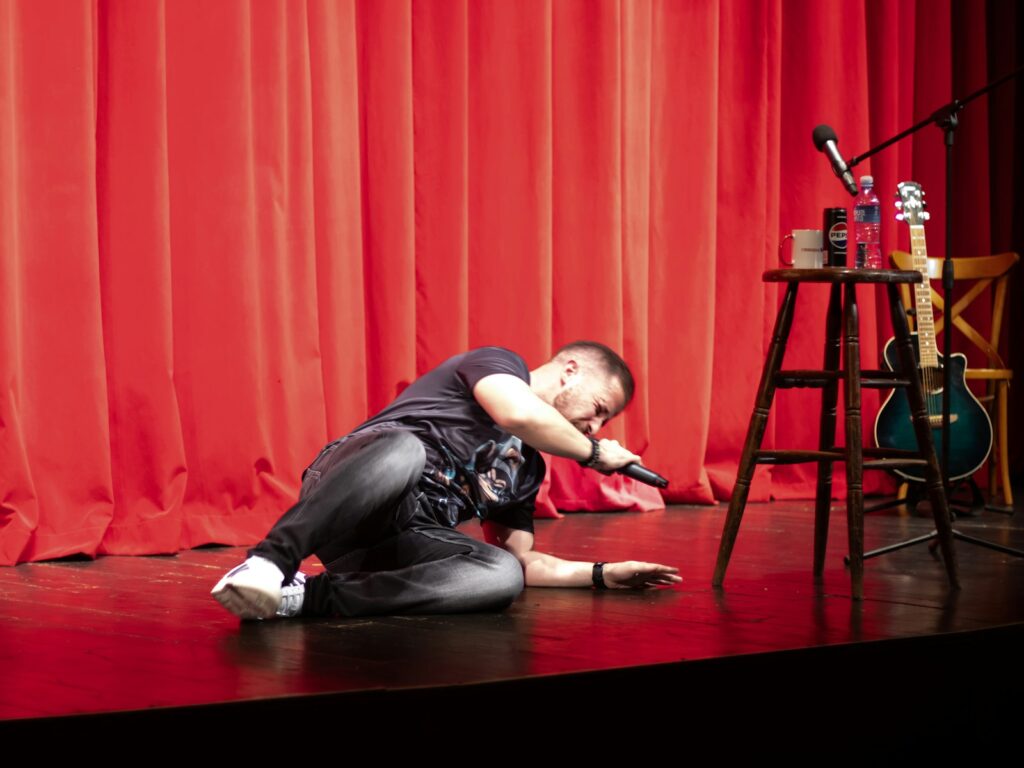
9. **Mike Myers: The Comedic Chameleon Who Gifted Us Cultural Icons**Mike Myers, a truly remarkable comedic chameleon, emphatically took the 1990s by storm with his incredible, transformative ability to embody an array of unforgettable characters. His early and immensely influential work on “Saturday Night Live” served as an exemplary masterclass in character creation, brilliantly showcasing his innate knack for crafting quirky, instantly recognizable personas that immediately resonated with audiences. This period proved beyond a doubt that he was much more than just a funny face; he possessed a profound gift for inhabiting these diverse roles, making them feel utterly real, hilariously bizarre, and entirely unique.
However, it was Myers’ audacious and brilliant leap to the big screen that firmly cemented his monumental legacy as an undeniable comedic giant of the decade. From the endearingly enthusiastic, basement-dwelling, rock-and-roll loving Wayne Campbell in the wildly popular “Wayne’s World” (1992) to the internationally groovy and endlessly quotable man of mystery, Austin Powers, in the iconic eponymous film series (which triumphantly began in 1997), Myers’ humor was consistently a delightful and sophisticated blend of intelligent satire and wonderfully silly slapstick. He possessed an acute understanding of pop culture, which he expertly twisted and subverted into pure comedic gold, creating universes that felt both familiar and fantastically absurd.
His unparalleled gift for seamlessly blending razor-sharp satire with expertly executed physical comedy allowed him to create not merely successful movies, but genuine cultural touchstones that continue to be enthusiastically beloved, referenced, and quoted by generations even today. “Wayne’s World” famously introduced instantly iconic catchphrases like “Party On!” and the emphatic “Not!” into the everyday lexicon, while Austin Powers’ various, hilarious alter egos provided us with an entirely fresh, witty, and often risqué way to view spy spoofs. Myers wasn’t just making us laugh uncontrollably; he was actively shaping the very language and texture of our collective humor, leaving an indelible mark on popular culture.
Myers’ impressive versatility and his unwavering commitment to meticulously and fully developing these distinct, immensely memorable characters firmly established him as one of the most innovative and profoundly successful comedic actors of his entire era. The significant impact of his seminal 90s work continues to reverberate powerfully, a testament to a comedian who possessed the rare wisdom to make us truly think deeply even while we were laughing hysterically. He unequivocally proved that sometimes, the seemingly silliest and most outlandish ideas can ultimately achieve the most profound and far-reaching cultural reach. Yeah, baby, his genius was truly Groovy!
_Publicity.jpg/640px-George_Carlin_1975_(Little_David_Records)_Publicity.jpg)
10. **George Carlin: The Uncompromising Voice of Dark Humor and Essential Social Truths**George Carlin, a towering figure whose unparalleled influence profoundly stretched across multiple decades, remained an incredibly powerful and universally respected voice throughout the entirety of the 1990s. While he had long been celebrated as an undisputed titan of comedy, this particular decade saw him continue to meticulously hone and refine his signature style of dark humor and piercingly incisive social commentary, proving unequivocally that his wit was as razor-sharp, relevant, and necessary as it had ever been. He transcended the role of a mere comedian; he was a profound philosopher wielding a microphone, holding an unflinching mirror up to the intricate absurdities and inherent contradictions of society.
His famously edgy wit and biting, often uncomfortable, observations on politics, organized religion, and the broader culture kept him in constant, high demand, effortlessly captivating audiences with his utterly fearless and confrontational approach to traditionally taboo subjects. Carlin possessed an uncanny, almost surgical ability to dissect societal absurdities with astonishing precision, effectively forcing his listeners to confront uncomfortable truths about themselves and the world around them, all while simultaneously roaring with uncontrollable laughter. Iconic routines such as “A Place for My Stuff” and the legendary “Seven Words You Can Never Say on Television” weren’t just brilliantly funny; they were truly groundbreaking, defiantly challenging censorship, linguistic conventions, and societal hypocrisy itself.
Carlin’s unflinching honesty, combined with his formidable intellectual rigor, undeniably left an indelible and permanent mark on the annals of comedy history. His influence permeated through and inspired countless aspiring comedians, encouraging them to bravely embrace a more thoughtful, challenging, and socially conscious approach to their own craft. He harbored no interest in pursuing cheap, facile laughs; instead, he passionately sought to provoke profound thought, audaciously challenge established authority, and mercilessly expose hypocrisy, all meticulously wrapped up in a package of exquisitely crafted, brilliantly delivered jokes. His performances were far less traditional stand-up routines and far more akin to a masterclass in comedic and philosophical genius.
His commanding presence throughout the 90s served to further solidify his already legendary legacy as an uncompromising trailblazer who adamantly refused to ever compromise his profound artistic vision for the sake of mainstream appeal or acceptance. George Carlin powerfully demonstrated, through his unwavering commitment, that comedy possessed the immense potential to be a truly potent and transformative tool for incisive social critique, making him not just a comedian we deeply loved, but one we universally respected for his profound courage, unparalleled intellect, and sheer comedic brilliance. He truly showed the world that the unvarnished truth, no matter how dark or uncomfortable, could in fact be incredibly, hilariously funny.

11. **Jerry Seinfeld: The Master of Observational Humor and Everyday Absurdity**Jerry Seinfeld, a name now utterly synonymous with meticulously crafted observational humor, truly soared to unassailable superstardom throughout the 1990s, firmly cementing his indelible place as one of comedy’s all-time greatest and most enduring figures. His uncanny and truly unique ability to effortlessly unearth the subtle, yet profound, humor in the most commonplace, everyday situations – ranging from the trivial frustrations of waiting in line to the intricate, unwritten rules of social etiquette – resonated with audiences on an incredibly deep and universal level. He possessed an almost magical way of pointing out things you’d never consciously noticed, then, in an instant, making you realize they were absolutely laugh-out-loud funny and utterly relatable.
While his razor-sharp wit and meticulously refined stand-up routines formed the foundational bedrock of his comedic empire, the true zenith of the 90s for Seinfeld was undoubtedly the groundbreaking sitcom that proudly bore his name, “Seinfeld.” Co-created with the equally brilliant Larry David, the show rapidly evolved into an unparalleled cultural phenomenon, famously celebrated as a “show about nothing” that, paradoxically, brilliantly explored life’s myriad absurdities through its incredibly talented and perfectly cast ensemble. Julia Louis-Dreyfus, as the unapologetically quirky Elaine Benes; Jason Alexander, as the perpetually exasperated and often neurotic George Costanza; and Michael Richards, as the wildly eccentric, scene-stealing Kramer, each contributed their distinct and unforgettable comedic flavors, creating an almost mythical and unparalleled on-screen chemistry that continues to delight.
The sitcom, which first premiered in 1989 and enjoyed a hugely successful run throughout the entire 90s, fundamentally transformed the landscape of television comedy. It boldly set a new, incredibly high benchmark for its irreverent and often boundary-pushing approach to depicting everyday life, influencing countless shows that followed in its innovative wake. Seinfeld’s signature observational humor, meticulously distilled into every single episode, made his unique perspective universally relatable and his expertly crafted catchphrases legendary, permeating into popular speech. His insightful book, “SeinLanguage,” further showcased his inimitable comedic voice, masterfully transforming ordinary, mundane thoughts into extraordinary, side-splitting humor.
Seinfeld’s enduring, almost timeless, appeal lies not only in his consistently brilliant humor but also in his unwavering dedication to his comedic craft, which he continues to explore and refine, as wonderfully exemplified in popular projects like “Comedians in Cars Getting Coffee.” He steadfastly remains the undisputed master of everyday humor, brilliantly proving, time and again, that sometimes, the funniest and most profound insights are precisely those things right under our very noses, patiently waiting for a comedic genius like Jerry to artfully point them out. He truly made us all feel like we were perpetually in on the joke, which is precisely why he is still so immensely beloved and revered today.
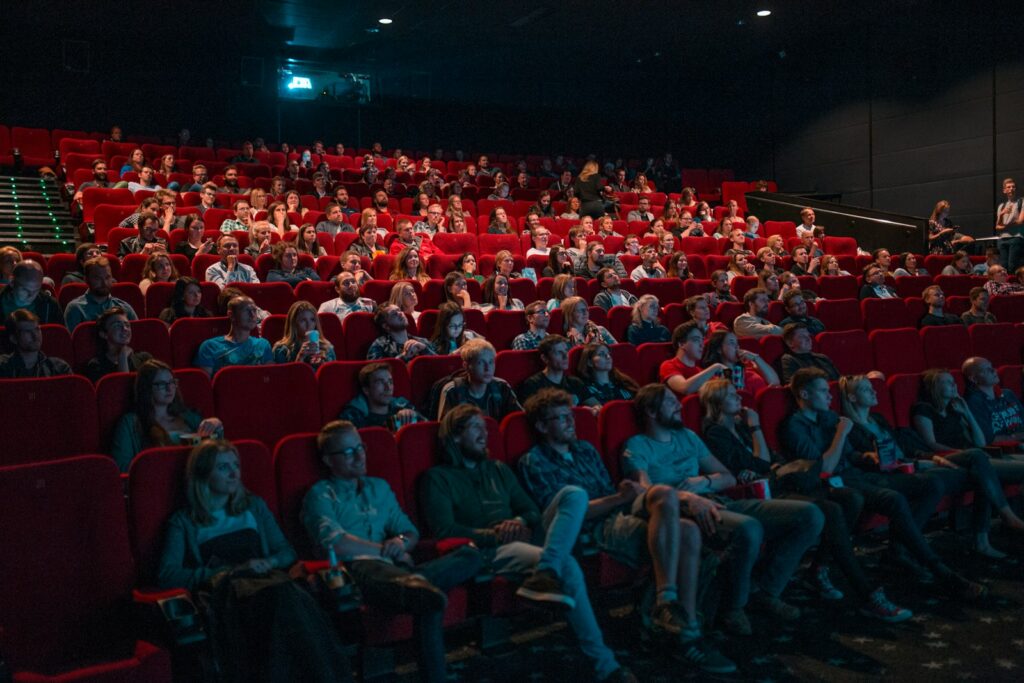
12. **Margaret Cho: The Bold and Unapologetic Voice of Identity and Representation**Margaret Cho burst onto the vibrant comedy scene of the 1990s as an undeniably fearless and unapologetic voice, instantly captivating audiences with her candid, no-holds-barred style and her unwavering willingness to tackle profoundly important social and political issues head-on. She wasn’t simply content with telling jokes; she was actively opening up crucial dialogues, boldly challenging deeply entrenched perceptions, and providing a powerful, much-needed, and rarely heard voice for the Asian-American community and other marginalized groups in a mainstream capacity that had not been widely witnessed before. Her arrival was a breath of fresh, honest air that resonated widely.
Born and meticulously raised in the culturally rich city of San Francisco, Cho masterfully and eloquently wove deeply personal experiences from her own life into her stand-up routines. She bravely addressed sensitive and often overlooked topics such as race, sexuality, and body image with a rare and remarkable combination of razor-sharp wit and refreshing, brutal honesty. Her material was profoundly personal yet possessed an incredibly universal relatability, allowing her to forge powerful connections with remarkably diverse audiences who deeply appreciated her authentic, transparent, and absolutely no-holds-barred approach to comedy. She possessed the unique ability to tackle inherently difficult subjects with a playful, yet simultaneously profound, sensibility.
In a truly historic and pivotal moment in 1994, Margaret Cho made television history with her groundbreaking sitcom, “All-American Girl.” This series was monumental as it became the first prime-time show to prominently feature an East Asian-American family in a leading role. While its broadcast run may have been regrettably brief, the show nevertheless marked a profoundly significant turning point, unequivocally solidifying Cho’s status as an undeniable trailblazer and innovator in the comedy world. It courageously opened crucial doors, sparked vital conversations, and powerfully demonstrated the profound societal hunger for more diverse and authentic representation within the mainstream media landscape.
Margaret Cho’s deeply resonant influence, forged during her pivotal years in the 90s, continues to reverberate powerfully and inspirationally throughout the contemporary comedic landscape. She not only broke significant, long-standing barriers but also played a crucial role in inspiring and empowering an entirely new generation of Asian comedians, including immensely talented figures like Ali Wong, Joel Kim Booster, and Bowen Yang, many of whom openly credit her with courageously paving the way for their own successes. Her ongoing, vibrant career and continuous tours stand as a living testament to her enduring and truly indelible impact, powerfully proving that a bold, authentic voice, unafraid to speak its profound truth through the liberating power of laughter, leaves a mark that is not only lasting but perpetually inspiring.
**An Ending Paragraph of the Article.**
And there you have it, comedy fans and ’90s enthusiasts! Our delightful, laughter-filled journey through the uproarious and undeniably transformative 1990s concludes with these twelve comedic powerhouses who truly defined an unforgettable era of humor. From the high-flying, physical antics of the “human cartoon” Jim Carrey to the razor-sharp, uncompromising social commentary of the legendary George Carlin, and from the incredibly relatable everyday observations of the meticulous Jerry Seinfeld to the barrier-breaking, authentic voice of Margaret Cho, these extraordinary artists gave us so much more than just perfectly timed jokes. They provided profound comfort, bravely challenged our perspectives, and powerfully reminded us of the sheer, unadulterated joy that undeniably comes from a truly good, side-splitting laugh. Their collective legacies continue to inspire, profoundly entertain, and serve as a vibrant reminder that the ’90s were, without a shadow of a doubt, a golden age where our sides truly hurt—in the best possible way—from all the infectious laughter. So, go on, revisit their classic specials, enthusiastically stream their iconic films, and let the good times and uproarious memories roll once more!


